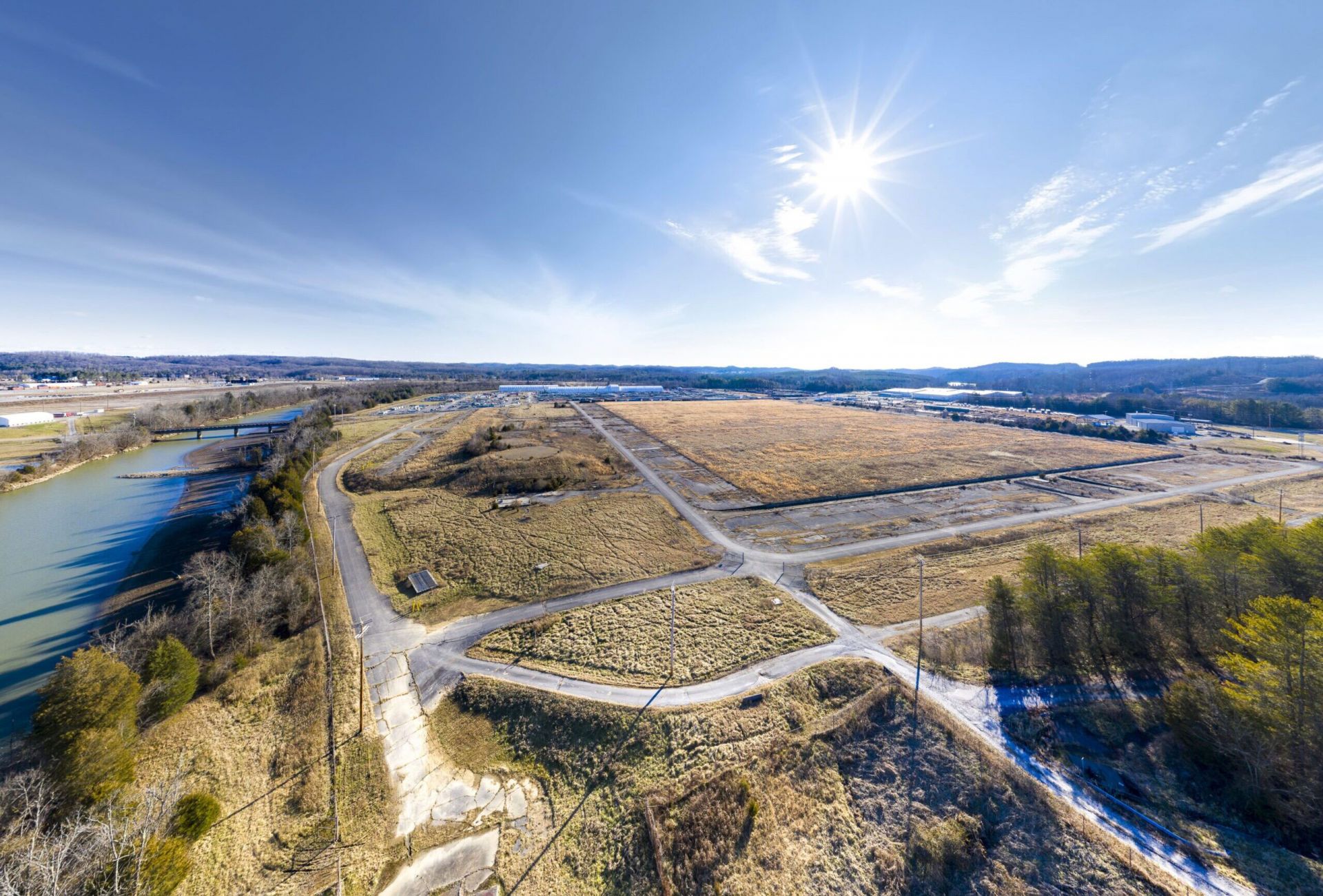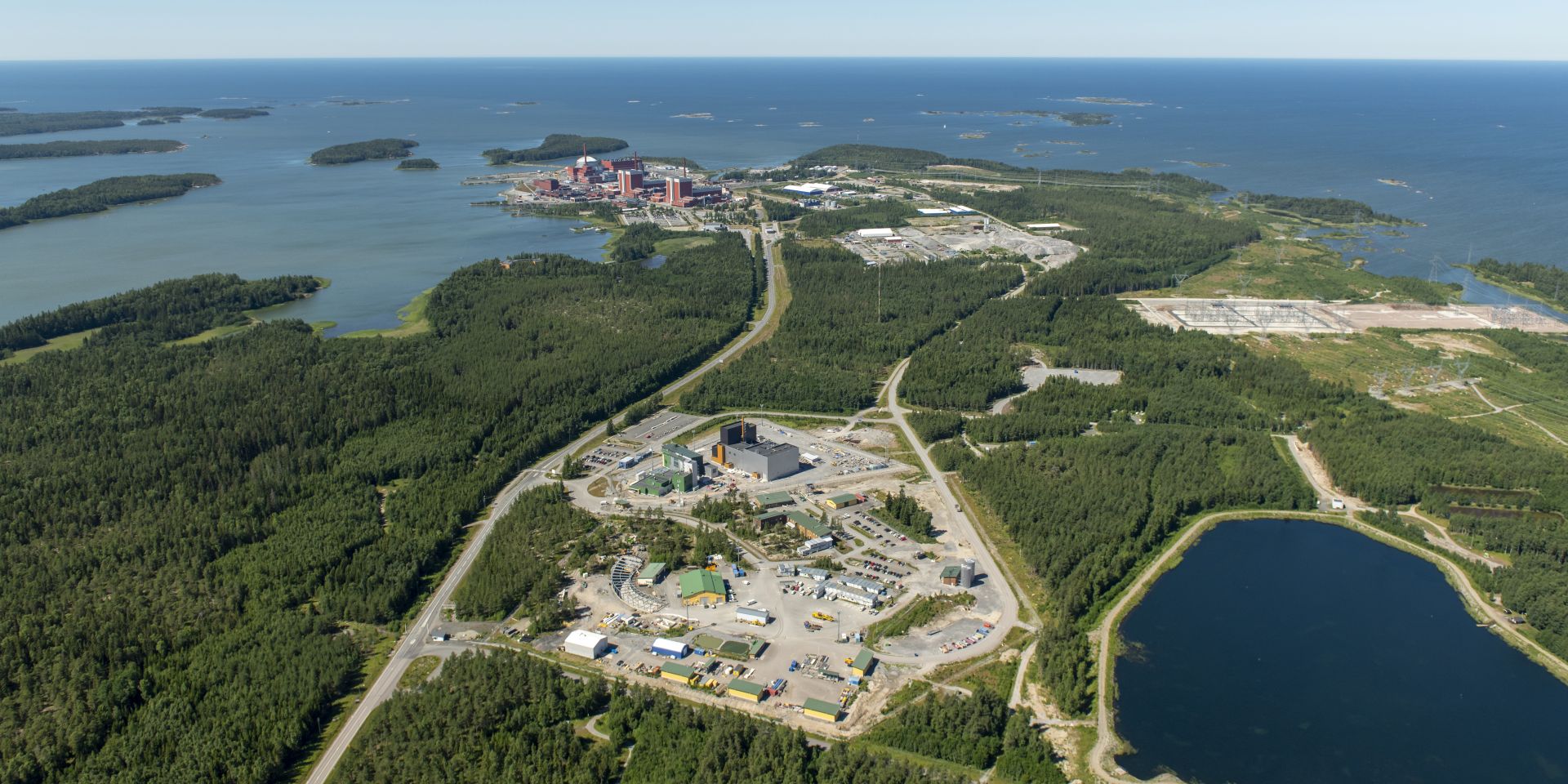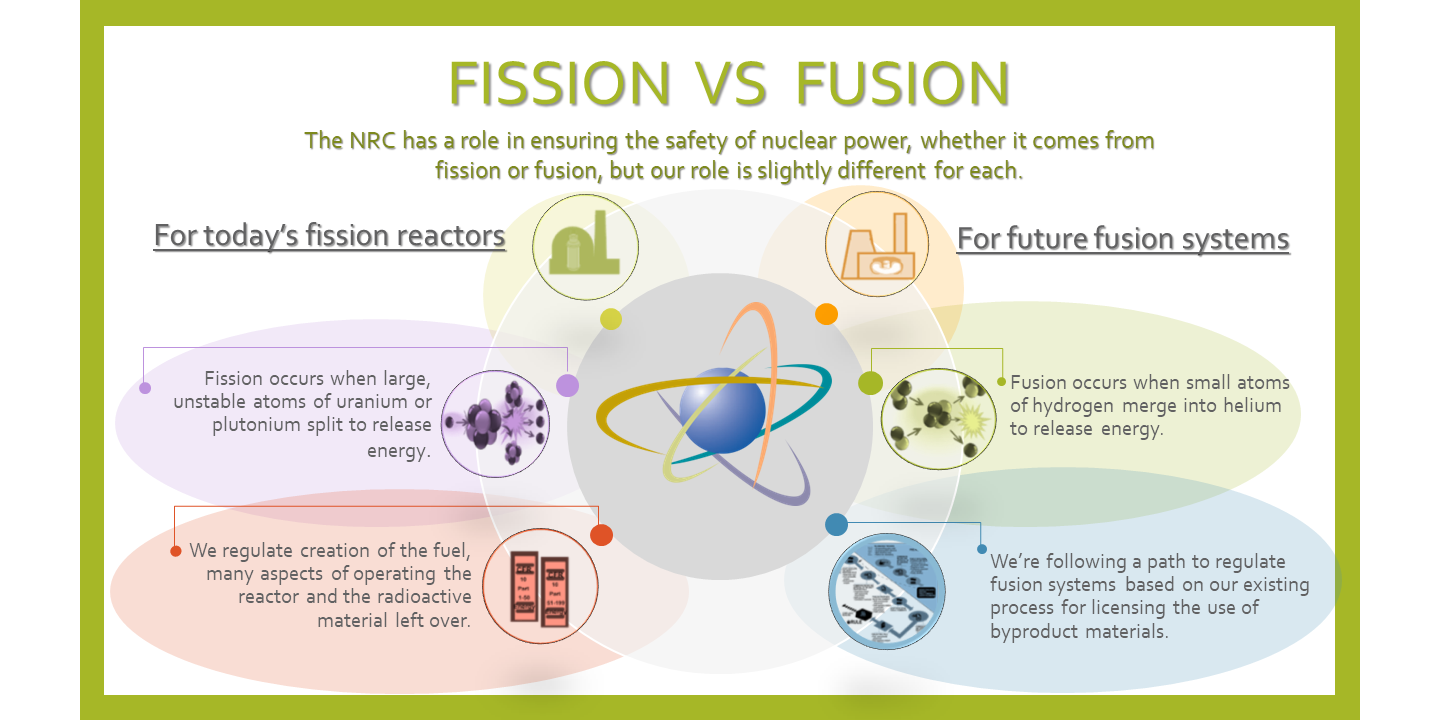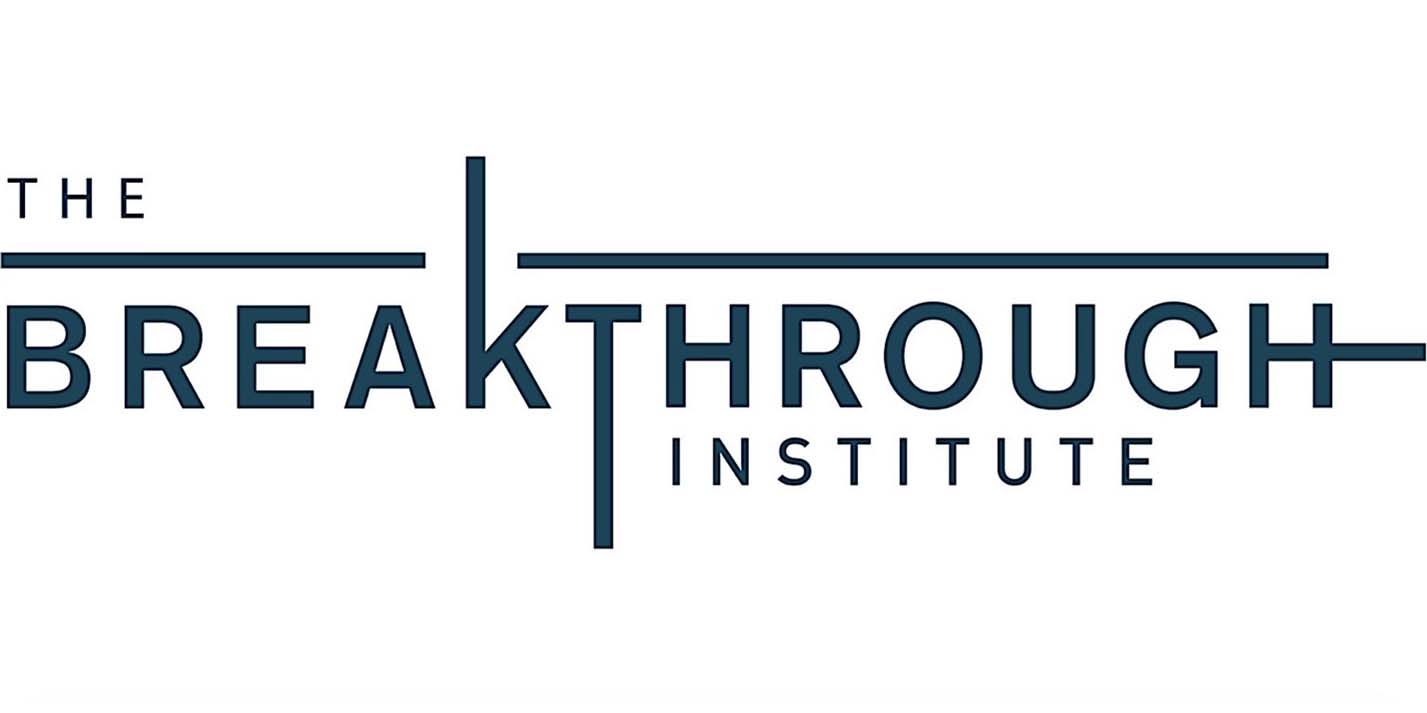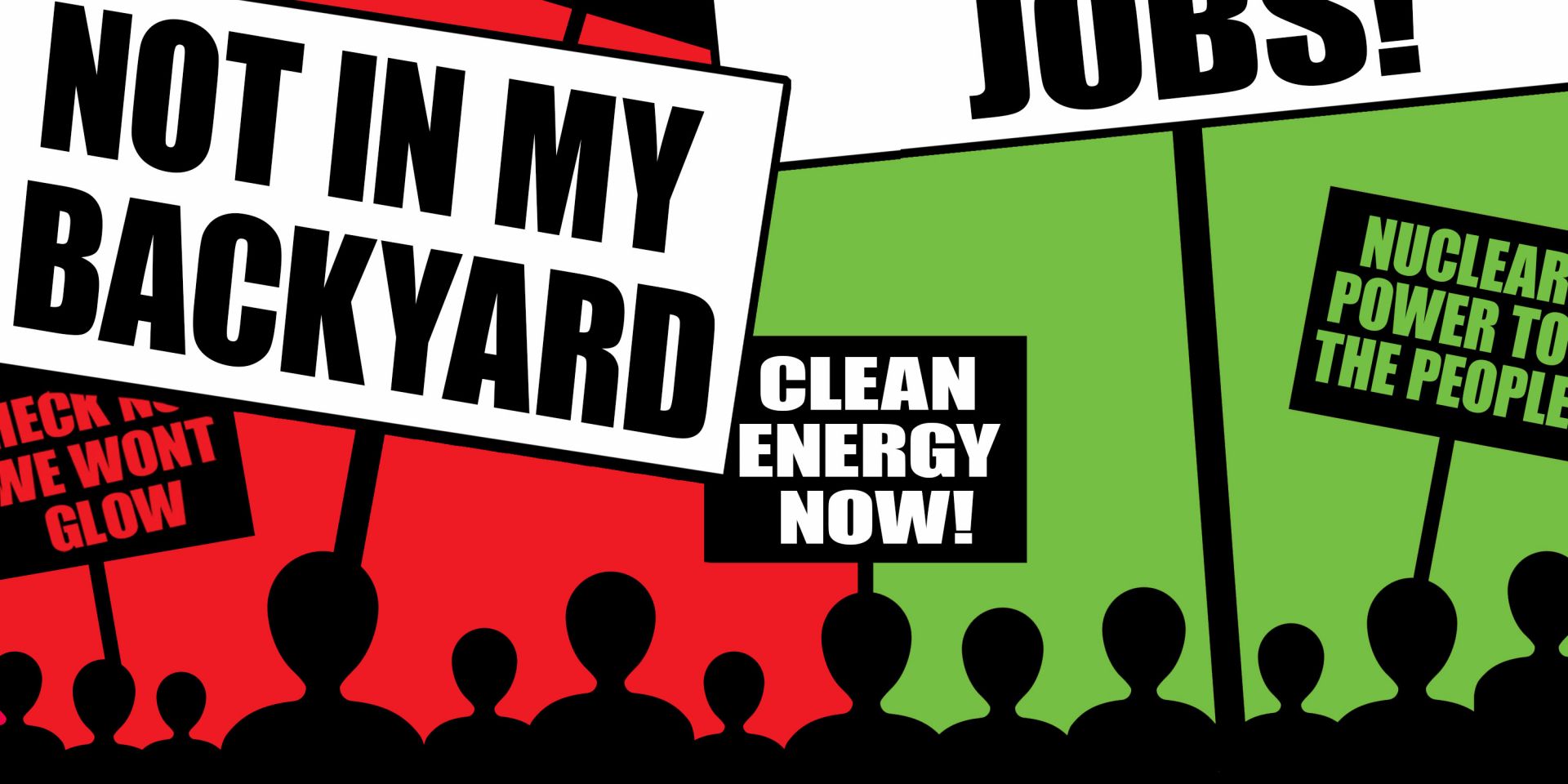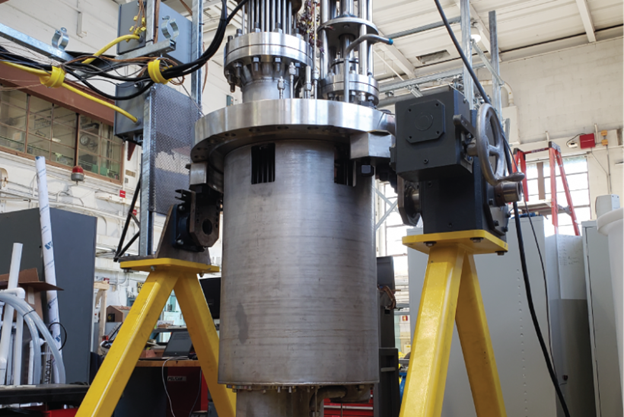The Diablo Canyon ISFSI cask loading team from Holtec, PG&E, and Diablo Canyon. (Photo: Holtec)
Holtec International announced that it has completed the campaign to transfer Diablo Canyon’s spent nuclear to dry storage ahead of its planned schedule, paving the way for the continued operation of the central California nuclear power plant.
The former site of the K-33 gaseous diffusion enrichment plant in Oak Ridge’s East Tennessee Technology Park is the future site of Hermes and Hermes 2. (Photo: Kairos Power)
Nuclear Regulatory Commission staff has completed its final safety evaluation for Kairos Power’s application to build its Hermes 2 molten salt–cooled reactor test facility in Oak Ridge, Tenn., the agency announced July 22. Earlier, and independently, the NRC’s Advisory Committee on Reactor Safeguards (ACRS) reviewed safety-related aspects of the Kairos application and provided its review to the Commission on July 17. The evaluation concluded that there are no safety aspects that would preclude issuing a construction permit for the facility, but that can’t happen until the NRC staff issues its final environmental assessment later this summer and the Commission assesses the staff’s work (under newly streamlined procedures for mandatory hearings) this fall before voting on whether to authorize a construction permit.
March 1, 2024, 3:03PMRadwaste SolutionsEdited by Tim Gregoire. Photos courtesy of Tapani Karjanlahti/Posiva. The site of the Onkalo deep geological repository near Eurajoki in southwestern Finland with the Olkiluoto nuclear power plant in the background. In 2015, Posiva received a construction license from the Finnish government for the repository, which will be constructed to a depth of 1,300 to 1,500 feet.
The year 2024 is shaping up to be a historic one for Posiva, the waste management organization owned by Finland’s two nuclear power plant utilities, Fortum and Teollisuuden Voima. The company is looking to receive regulatory approval of its operating license for the Onkalo deep geological repository for high-level radioactive waste by the end of the year.
How Kairos Power is applying rapid iterative development to the licensing process as part of its strategy to deliver on cost
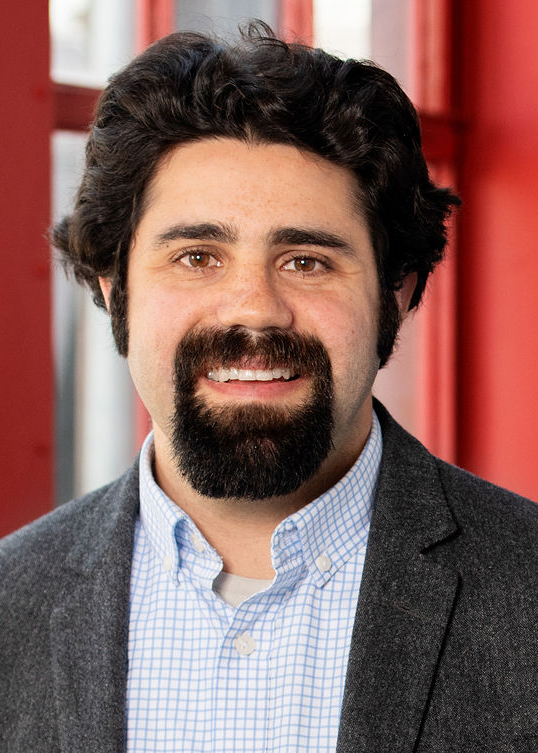
Laufer
Developing a first-of-a-kind reactor is a daunting endeavor. To be successful, advanced reactor designers need to achieve cost certainty by delivering a safe and affordable product at the promised cost. To meet this goal, Kairos Power structured its approach around four key strategies: 1) achieving technology certainty through a rapid iterative approach; 2) achieving construction certainty by demonstrating the ability to build it; 3) achieving licensing certainty by proving Kairos can license it; and 4) achieving supply chain certainty by vertically integrating critical capabilities. By mitigating risk in these four key areas, Kairos Power is confident that it will get true cost certainty for our future products.
The third prong in Kairos’s strategy—achieving licensing certainty—was a key driver in the decision to build the Hermes low-power demonstration reactor, and it remains a major workstream as the company’s construction permit application (CPA) undergoes review by the U.S. Nuclear Regulatory Commission. Licensing a new nuclear technology is no small challenge, and there are multiple approaches companies can take. Here’s a look at how we at Kairos are approaching it.
THETA pictured in Argonne National Laboratory’s METL lab. (Photo: ANL)
The Thermal Hydraulic Experimental Test Article (THETA) at Argonne National Laboratory is now operating and providing data that could support the licensing of liquid-metal fast reactor designs by validating thermal-hydraulic and safety analysis codes. The new equipment has been installed in Argonne’s Mechanisms Engineering Test Loop (METL), and its first experiments are supporting data validation needs of Oklo, Inc., by simulating normal operating conditions as well as protected and unprotected loss-of-flow accidents in a sodium-cooled fast reactor.
Pictured from left to right: John Tappert, NRC; Jonathan Rowley, NRC; Jacob Zimmerman, NRC; Matthew Bartlett, NRC; Tim Beville, DOE; Jennifer Wheeler, TRISO-X; John Lubinski, NRC; Pete Pappano, TRISO-X; Jill Caverly, NRC; and Shana Helton, NRC. (Photo: X-energy)





